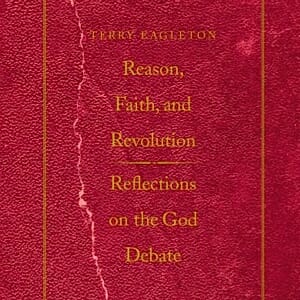Reason, Faith, and Revolution: Reflections on the God Debate by Terry Eagleton
Hitchens Is Not Great

The recent death of Christopher Hitchens has brought forth a host of recollections about him, and he is as controversial in death as he was in life. We hear that he was a brilliant writer who always met his deadlines, and always said what he thought. We hear that he was a drunk, whose support for the Iraq war showed him to be a racist and a bully. He was also, famously, a militant atheist, who thought the world would be better off without religion. The title of his 2007 book God Is Not Great: How Religion Poisons Everything pretty much sums it up.
In Reason, Faith, and Revolution, Terry Eagleton calls God Is Not Great “stylish, entertaining, splendidly impassioned, [and] compulsively readable.” But he also shows how shallow Hitchens’s conception of religion is, and how feeble a straw man he set up for himself. (Eagleton includes Richard Dawkins’s The God Delusion and Daniel C. Dennett’s Breaking the Spell in his indictment; he refers to the whole crowd as Ditchkins for rhetorical purposes.)
Religion has much to answer for, Eagleton freely concedes, but that’s all the more reason for understanding what it’s really about, as Ditchkins does not. The question of “whether God exists,” for instance, presumes a God who’s an entity to be looked for in the world, which is exactly what Christian orthodoxy does not presume. Eagleton is not surprised: “It is, in fact, entirely logical that those who see religion as nothing but false consciousness should so often get it wrong, since what profit is to be reaped from the meticulous study of a belief system you hold to be as pernicious as it is foolish?”
Eagleton does not speak as a believer. Roman Catholic in his youth, he’s a literary critic and a Marxist (who ran in the same radical circles with Hitchens, back in the day), but when he reads the Bible, he sees what’s on the page in front of him. It’s a radical vision. “The New Testament is a brutal destroyer of human illusions. If you follow Jesus and don’t end up dead, it appears you have some explaining to do. The stark signifier of the human condition is one who spoke up for love and justice and was done to death for his pains.”
Is that supposed be the religion that Ditchkins derides as mindlessly comforting, an opiate of the people? Of course, over its lifetime, Christianity has certainly acted like it, which is where Eagleton’s critique lies. “Apart from the single instance of Stalinism, it is hard to think of a historical movement that has more squalidly betrayed its own revolutionary origins. Christianity long ago shifted from the side of the poor and dispossessed to that of the rich and aggressive.”
A great deal of the Christianity we see practiced today is busy comforting the comfortable, and leaving the afflicted to their miseries, or indeed inflicting more. “Far from refusing to conform to the powers of this world, Christianity has become the nauseating cant of lying politicians, corrupt bankers, and fanatical neocons, as well as an immensely profitable industry in its own right.”
Here’s a critique of religion worthy of the name. Relentlessly comparing the most prominent vein of our current religious life to its own founding principles, Eagleton convicts it utterly. “The social order betrays in its everyday practice that it does not and cannot believe in the spiritual values it supposedly holds dear, whatever it may solemnly claim on Sundays or in presidential addresses to the nation. What it does, and the way it justifies this to itself, are grotesquely at odds with each other.” While Ditchkins rejects religion because it doesn’t really mean anything, Eagleton holds that it means something important, and fails to deliver on it.
-

-

-

-

-

-

-

-

-

-

-

-

-

-

-

-

-

-

-

-

-

-

-

-

-

-

-

-

-

-

-

-

-

-

-

-

-

-

-

-








































